What do Urban Company, Paytm, Delhivery, Cred, Ola, etc. have in common – they’re Indian start-ups. They are success stories that inspire entrepreneurs to hold on to their vision. The main reason these ventures succeeded in light of the many challenges faced by start-ups in India is that they attacked a real need. There are a number of pressing issues in the country today. Let’s take a look at the 15 major problems in India that can be solved by entrepreneurs as mentioned below.
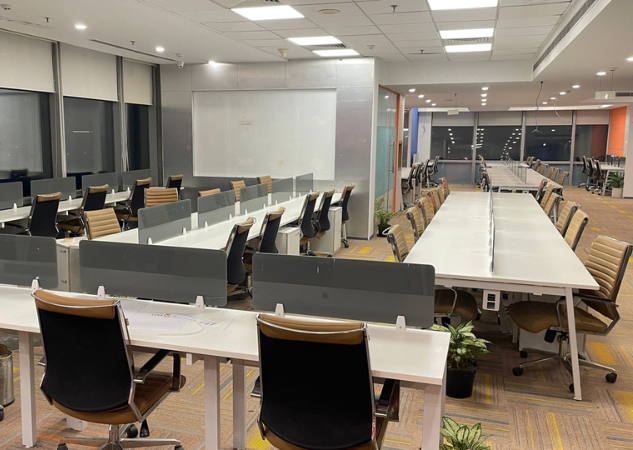
15 Major Problems in India that can be solved by Entrepreneurs in 2025
- Urban Waste Management
- Adult Education
- City Pollution
- Public Transportation
- Sanitation
- Women & Child Safety
- Water Management
- Disabled Friendly Infrastructure
- Energy Crisis
- Expensive Office Space
- Access to Healthcare
- Financial Inclusion
- Agricultural Solutions
- Employment Generation
- Urban Infrastructure
1. Urban Waste Management
Back in 2016, a report showed that India generated 62 million tonnes of waste each year with a 4% average annual growth rate. This includes organic waste, dry waste, plastics, etc.
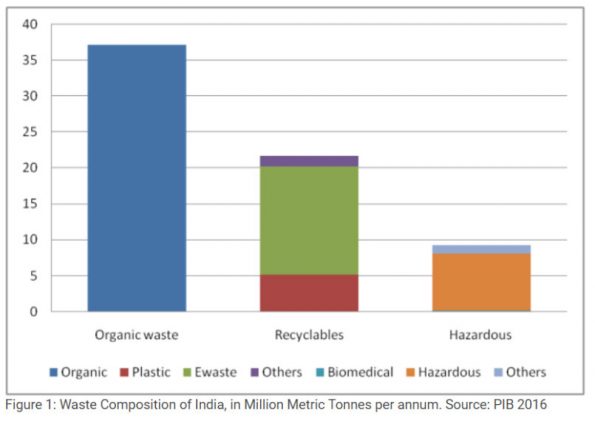
Source: EPW
This is a problem that is too big to be left unaddressed. The mountain of garbage in Delhi that frequently self-combusts is proof of this. There are a number of entrepreneurs attacking this problem already. The solutions they have found range from home composting kits to making incense sticks from discarded flowers. But, there is still plenty that can be done.
2. Adult Education
The silver lining of the pandemic is proof that almost everything can indeed be digitized. This includes education. According to a 2017-18 survey, 9 large states in India had a literacy rate less than the national average.
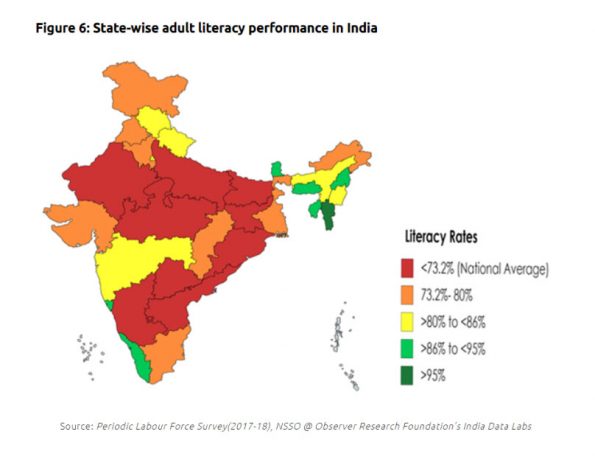
Source: ORF
While there are a number of start-ups focussing on education for children, the attention given to adult education is limited. The government has started many initiatives to overcome this challenge and today’s entrepreneurs can give it the boost it needs.
💡 Are you looking for Coworking space in Gurgaon, Noida or Delhi?. We are just a call away.
Call now: 08999 828282
3. City Pollution
As winter approaches air pollution becomes one of biggest problem in India. Whether it is because of crops burning in the fields or vehicular exhausts, we need smarter solutions to air pollution. Efforts being made currently range from planting green corridors under flyovers to using carbon dust from exhausts to create industrial products. Startups need to work harder to find a way to keep our city air clean.
4. Public Transportation
2 cars per household is not an exception but the norm in many Indian cities. This causes trouble with street congestion, pollution, etc. And, it all comes down to a lack of public transportation. Only 18.1% of Indians take public transportation to work. With the construction of metro lines and the introduction of air-conditioned buses, this number is increasing but there are still miles to go before our roads can feel less congested.
5. Sanitation
The lack of sanitation is one of the less-talked-about major problems for start-ups in India.
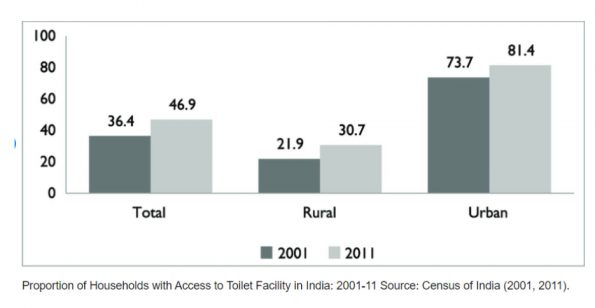
Source: ResearchGate
Often considered an issue that must be tackled by the government, it is time for the private sector to step up and lend a hand in tackling the problem. Examples of efforts already being made include the Sulabh shauchalayas that have been installed across the country. While this has helped, there are still many people who do not have access to clean toilets.
6. Women & Child Safety
Women and children are often told not to step out alone after dark. The main reason for this is a fear for their safety. Unfortunately, India has a notorious relationship with crime against women and children statistics. This is a concern for every entrepreneur, man or woman and must be tackled. Some of the solutions being worked on include personal safety apps, GPS tracking devices for public transport vehicles, etc.
💡 SMBs looking for HR, Marketing, Technology and Funding solutions for their business.
Call Hello Jarvis 994 8000 800
7. Water Management
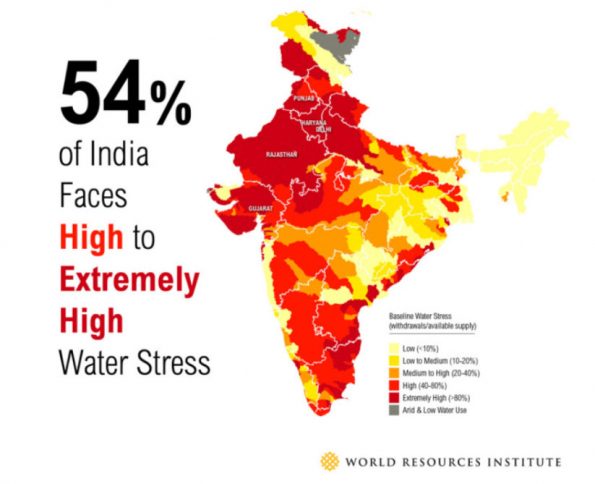
Not very long ago, Bengaluru was in the news for being at risk of running dry by 2020. Thankfully, that did not happen but improper water management is one of the major problem in India nowadays.
Source: NewSecurityBeat
We need to find ways to reduce water wastage and water treatment for recycling. Today, most housing societies have water recycling plants but many of them do not function as efficiently as they should. The water wastage in the manufacturing industry needs to be addressed too. Did you know that it takes about 3000 liters of water to produce a single shirt!
8. Disabled Friendly Infrastructure
We also need to pay attention to the specially-abled population of India. Wheelchair ramps are now quite common for residential and commercial establishments. We also need to look at people who cannot see, hear, etc. Some of the other interesting solutions that are being worked upon include swivel seats in cars and braille laptops.
9. Energy Crisis
Whether you talk of the rising cost of fuel or electricity, it comes down to the limited non-renewable resources available. Solar power is being used to power homes and even airports but we need to do more. Entrepreneurs need to look into alternative energy sources and design practical solutions centred around them.
10. Expensive Office Space
There are a number of problems that start-ups can solve but one of the main problems they themselves face is the lack of affordable office space. An organization needs a physical space for employees to brainstorm together if they are to design effective solutions.
11. Access to Healthcare
With a vast population and limited access to healthcare facilities in India, entrepreneurs have developed innovative solutions like telemedicine platforms (e.g., Practo, mfine) to connect patients with doctors remotely, healthcare delivery services (e.g., Portea Medical,), and affordable medical devices.
12. Financial Inclusion
Entrepreneurs have leveraged technology to provide financial services to the unbanked population through digital payment platforms (e.g., Paytm, PhonePe & Google Pay), microfinance institutions, and peer-to-peer lending platforms.
13. Agricultural Solutions
India being primarily agrarian, entrepreneurs have developed solutions to address the problems faced by farmers in India, such as agricultural technology startups providing farm management tools, market linkage platforms (e.g., AgroStar), and supply chain optimization solutions.
14. Employment Generation
Indian Entrepreneurs can reduce the unemployment problem in India. Entrepreneurship has been a key driver of job creation in India, with startups across various sectors contributing to employment generation, especially among the Indian youths.
15. Urban Infrastructure
With rapid urbanization, entrepreneurs have focused on developing solutions for urban infrastructure challenges such as smart city solutions, urban mobility solutions, and affordable housing projects.
Working out of garages and cafes is fine as a stop-gap arrangement but it lacks professionalism. One of the solutions emerging is a shift from traditional, independent office spaces to shared and coworking spaces. The Office Pass (TOP) is one such coworking space where start-ups can rent desk space according to their needs and access shared infrastructure at affordable cost.
A coworking space allows start-ups to pay less attention to day-to-day administration and instead focus on the biggest problems in India and their solutions. The Office Pass (TOP) has coworking spaces in Delhi, Gurgaon and Noida. To know more, reach out at 08999 828282.
FREQUENTLY ASKED QUESTIONS (FAQS):
Question: What are the major problems in India that can we solve by entrepreneurs?
Answer: Entrepreneurship solves a wide range of problems and can bring about various benefits to individuals, society, and the economy. Here are some of the problems that entrepreneurship can solve include Unemployment, Innovation, Economic growth, Social issues, Wealth creation, Competition and Regional development.
Question: What are the challenges faced by present india?
Answer: India is a large and diverse country with numerous challenges across various sectors. Some of the major challenges faced by India today include Poverty, Unemployment, Healthcare, Education, Infrastructure and Environmental degradation.
Question: What are the major problems in india that can be solved by technology?
Answer: There are numerous major problems in India that can be solved by technology. Here are some examples like: Healthcare, Education, Agriculture, Transportation and Waste management.
Question: How do entrepreneurs solve problems differently?
Answer: Successful Entrepreneurs approach are problem-solving with a unique combination of creativity, resourcefulness, persistence and risk-taking, which allow them to tackle challenges in a way that sets them apart from others.
Question: What are three social problems can be solved by entrepreneurs?
Answer: Entrepreneurs can help solve a wide range of social problems. Here are the top three social problems can be solved by entrepreneurs include Unemployment, Environmental sustainability and Access to healthcare.
Question: What solutions exist for the problem of unreliable electricity supply in many parts of India?
Answer: Entrepreneurs have introduced off-grid solar power solutions, such as solar microgrids and portable solar lanterns, providing reliable electricity to communities without access to the main power grid.
Question: How can India improve healthcare accessibility in rural areas?
Answer: Entrepreneurial ventures have introduced telemedicine platforms, connecting rural patients with doctors through mobile technology, thereby overcoming the barrier of distance and improving healthcare access.
Question: What initiatives are addressing the challenge of unemployment among youth in India?
Answer: Entrepreneurial ventures focusing on skill development and vocational training have emerged, offering courses tailored to market demand and equipping young people with employable skills.
Question: How can address the challenge of pollution in indian cities?
Answer: Entrepreneurs have introduced electric vehicles, air purifiers, and waste management solutions, promoting cleaner transportation and sustainable urban development.
Question: What initiatives are addressing the issue of low agricultural productivity in India?
Answer: Entrepreneurs have developed precision agriculture technologies, including IoT devices and AI-powered analytics, to optimize resource usage and enhance crop yields.



